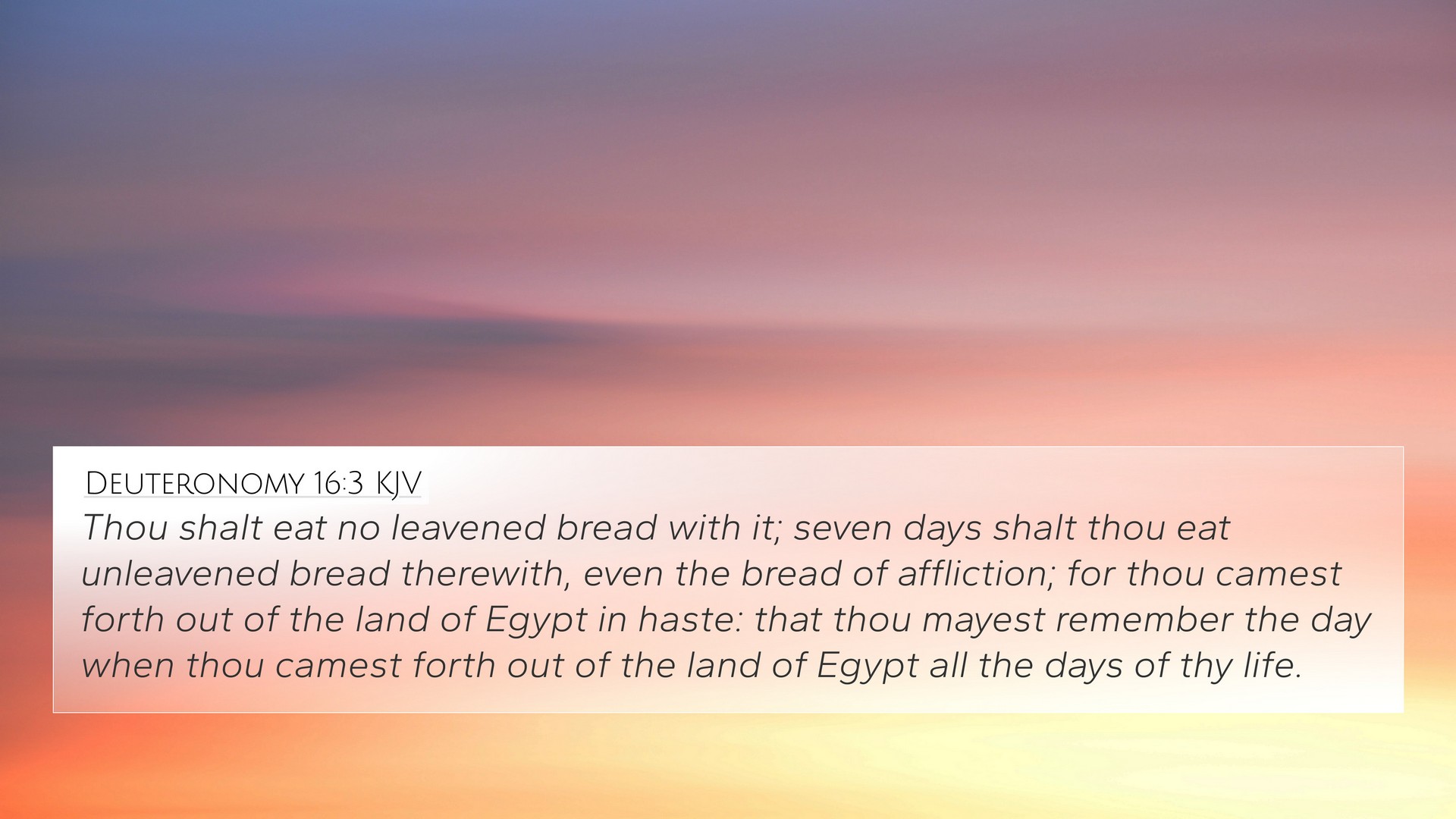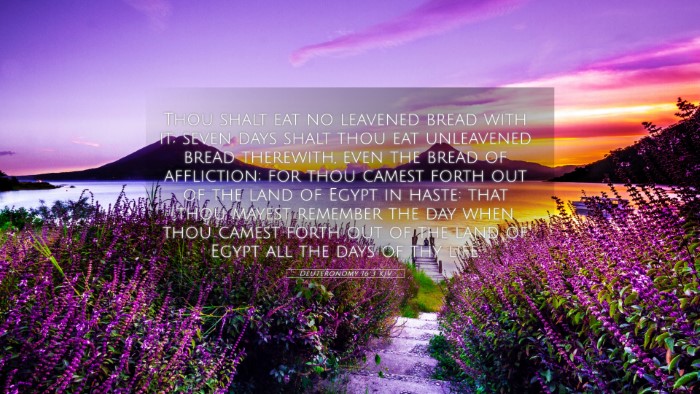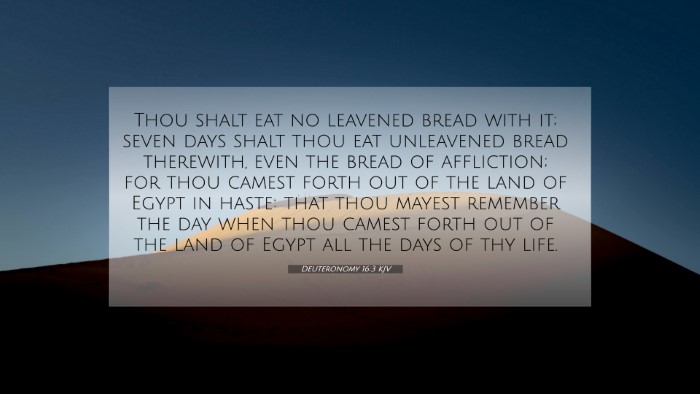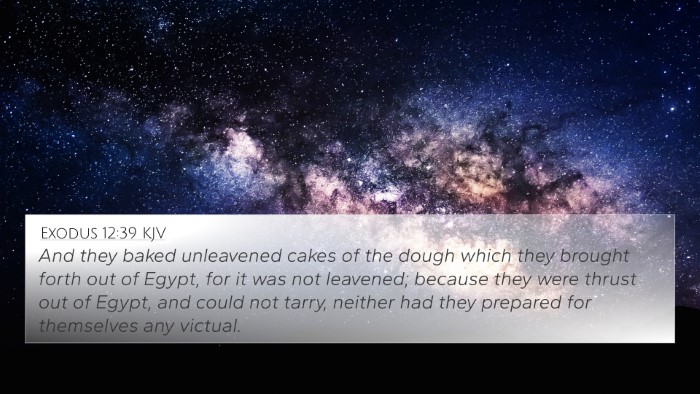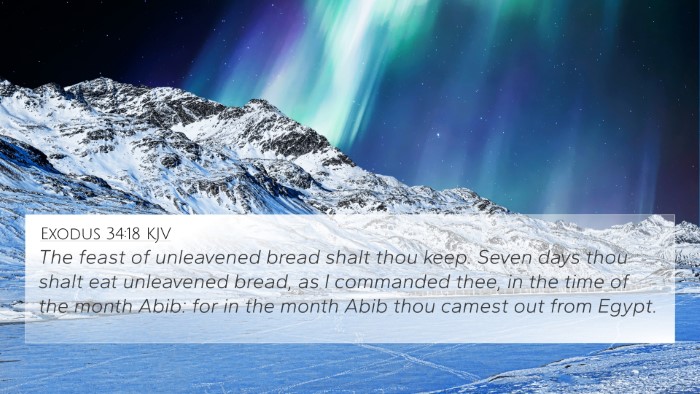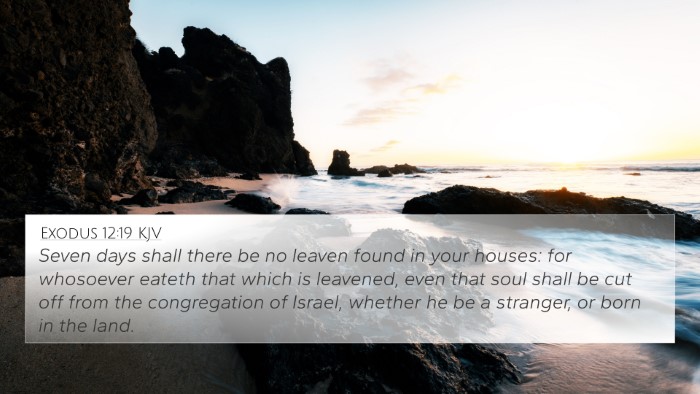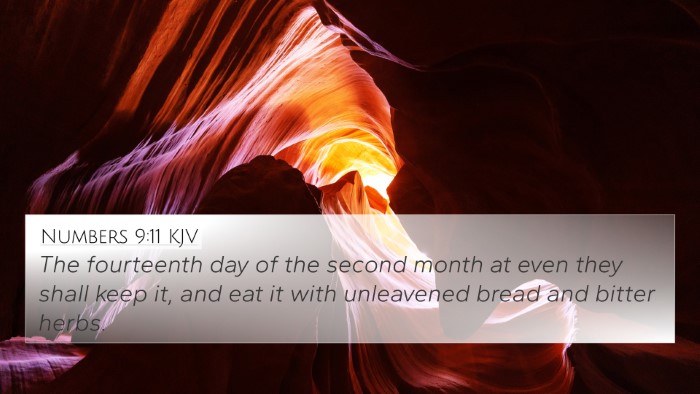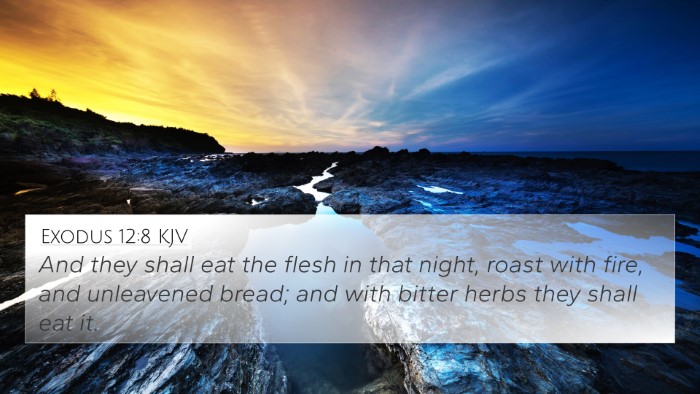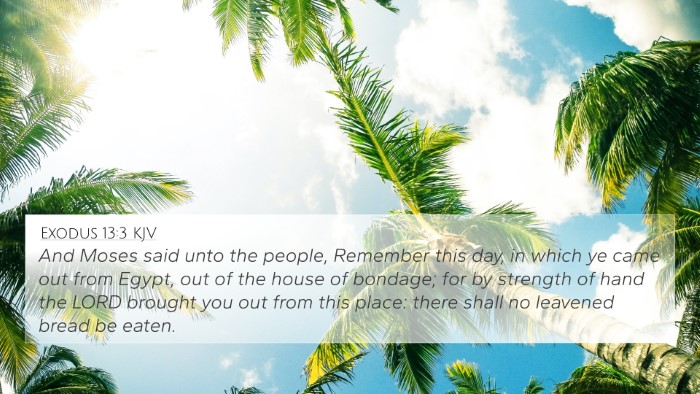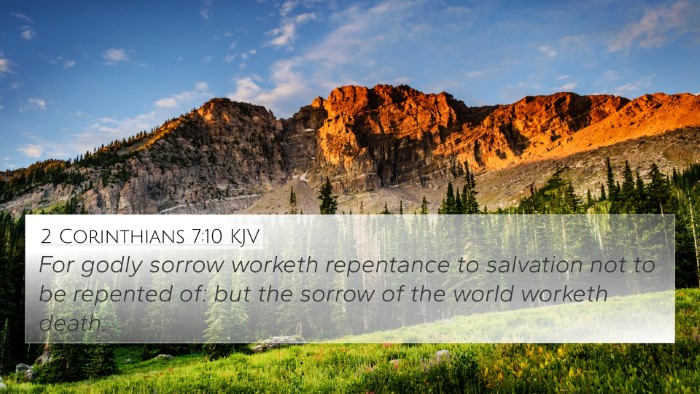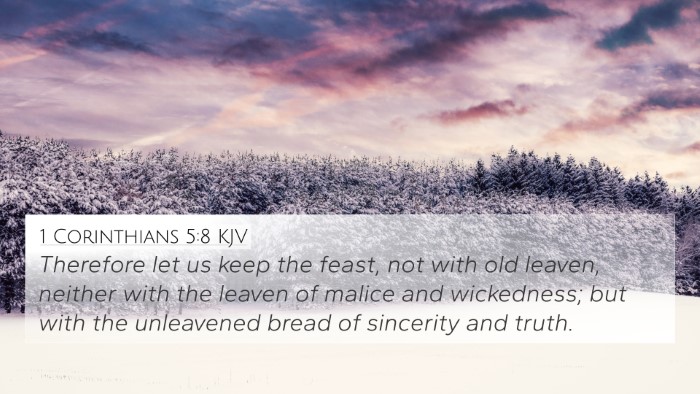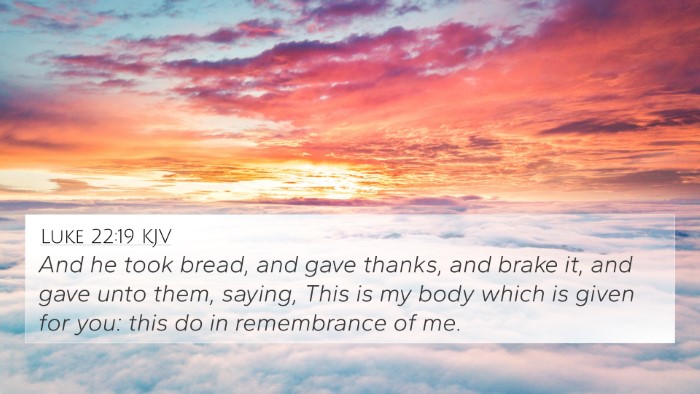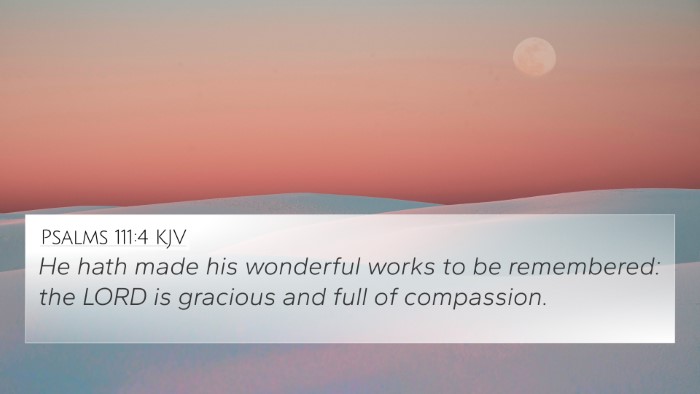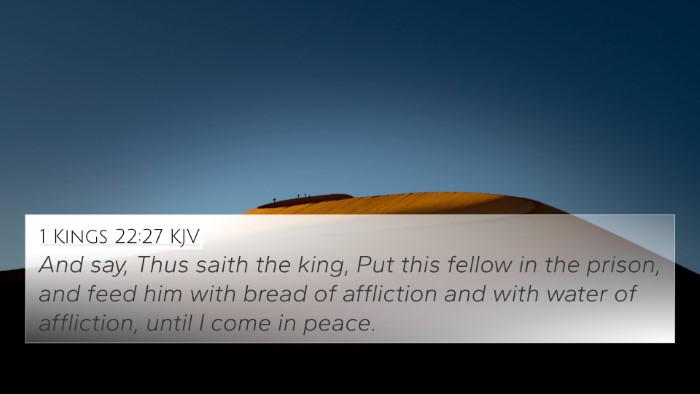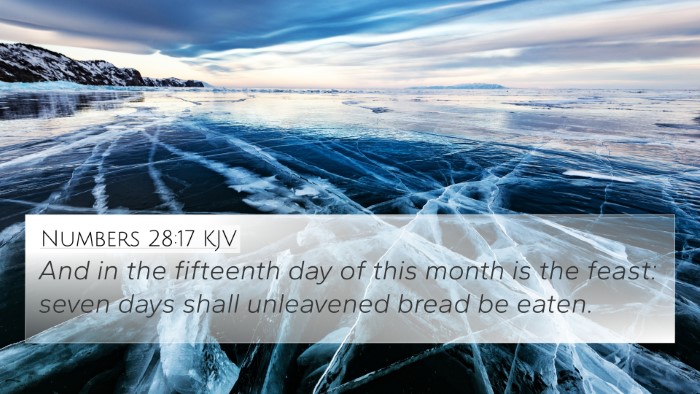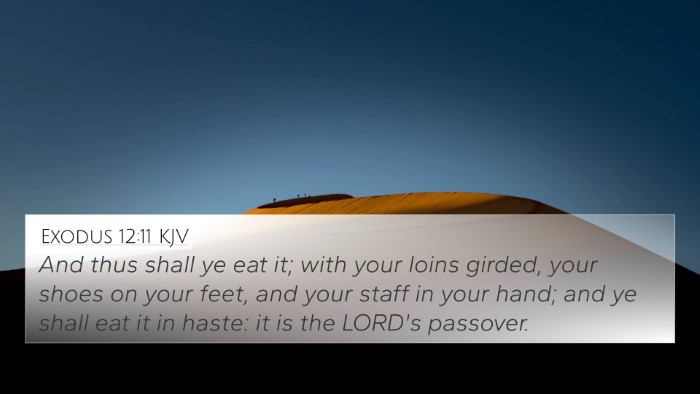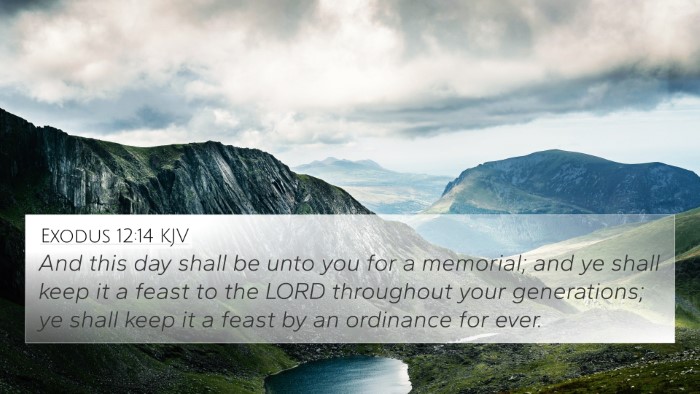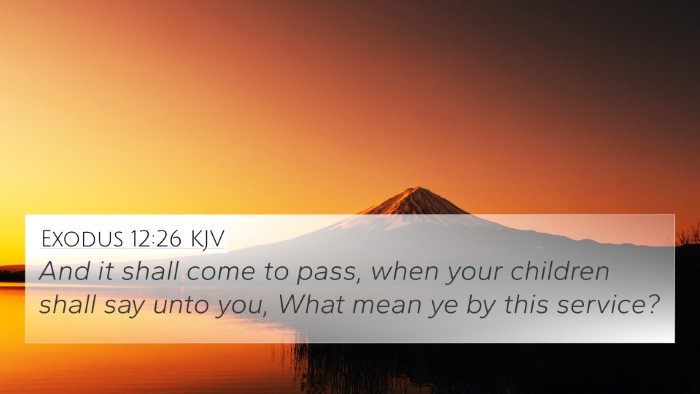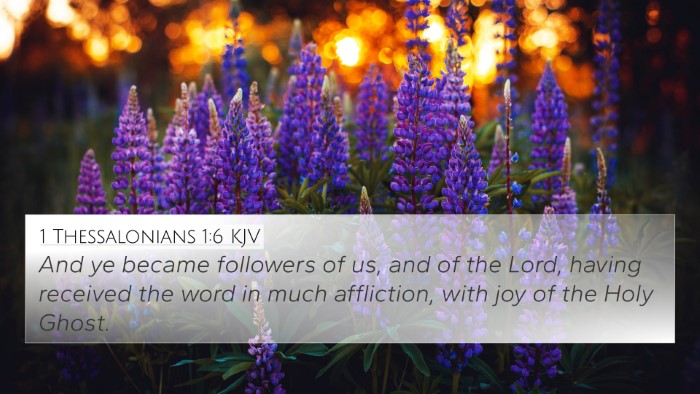Understanding Deuteronomy 16:3
Verse: "You shall eat no leavened bread with it; seven days you shall eat unleavened bread with it, the bread of affliction, for you came out of the land of Egypt in haste, that all the days of your life you may remember the day when you came out of the land of Egypt."
Summary of Meaning
Deuteronomy 16:3 emphasizes the requirement for the Israelites to eat unleavened bread during the Feast of Unleavened Bread, a significant observance that memorializes their hasty exodus from Egypt. This verse underscores the importance of remembering God’s deliverance and maintaining a spiritually reflective posture by avoiding leaven, which often symbolizes sin or corruption in Biblical texts.
Insights from Public Domain Commentaries
- Matthew Henry: He highlights the importance of remembrance in the act of eating unleavened bread, suggesting that God's people must never forget their deliverance from bondage. The bread of affliction also reflects their suffering in Egypt, and this annual observance was a teaching opportunity for future generations.
- Albert Barnes: Barnes points out that the absence of leaven signifies purity and holiness in the lives of God's people. He also notes that the observance of these commands serves to remind the Israelites of their identity rooted in the salvation from slavery, urging them to maintain faithfulness to God.
- Adam Clarke: Clarke provides insights into the symbolic aspects of unleavened bread and its connection to sincerity and truth. He explains that the hasty departure from Egypt through the power of God’s hand demanded a lifestyle that is marked by honesty and integrity, free from malice and bitterness.
Bible Verse Cross-References
This verse can be cross-referenced with the following scriptures that illuminate its themes and connections:
- Exodus 12:17: "And you shall observe the Feast of Unleavened Bread, for on this very day I brought your hosts out of the land of Egypt."
- Exodus 12:8: "They shall eat the flesh that night, roasted on the fire; with unleavened bread and bitter herbs they shall eat it."
- Leviticus 23:6: "And on the fifteenth day of the same month is the Feast of Unleavened Bread to the Lord; for seven days you shall eat unleavened bread."
- 1 Corinthians 5:7-8: "Cleanse out the old leaven that you may be a new lump... Let us therefore celebrate the festival, not with the old leaven, the leaven of malice and evil, but with the unleavened bread of sincerity and truth."
- Deuteronomy 16:1: "Observe the month of Abib and keep the Passover to the Lord your God, for in the month of Abib the Lord your God brought you out of Egypt by night."
- Psalm 105:43-45: "So he brought his people out with joy, his chosen ones with singing. And he gave them the lands of the nations, and they took possession of the fruit of the peoples' toil..."
- Matthew 26:17-19: "Now on the first day of Unleavened Bread the disciples came to Jesus, saying, 'Where will you have us prepare for you to eat the Passover?'"
Thematic Bible Verse Connections
The themes of remembrance, deliverance, and purity resonate throughout both the Old and New Testaments. Cross-referencing Biblical texts allows one to see how the Old Testament prefigures the New Testament teachings regarding salvation and the life of Christ. The avoidance of leaven can be linked to the teachings of Jesus concerning spiritual purity and integrity in the lives of believers.
Comparative Bible Verse Analysis
In conducting a comparative study of this passage with others, we see a consistent theme of remembering God's acts of salvation. For instance, when comparing Deuteronomy 16:3 with Luke 22:19, where Jesus breaks the bread in connection with memory and forgiveness, we uncover the continuity of God's redemptive plan.
Tools for Bible Cross-Referencing
To effectively study and understand the connections between Bible verses, consider these tools:
- Bible Concordance: A comprehensive index of Biblical terms and phrases.
- Bible Cross-Reference Guide: Resources that detail relationships between different scriptures.
- Bible Chain References: A methodical way to link related verses.
- Bible Reference Resources: Tools designed for deeper cross-referencing and study.
User Intent Explained
Individuals often seek insights on how specific Bible verses connect and support one another. Understanding the connections helps deepen their comprehension and application of scripture. For example, if someone asks, "What verses are related to Deuteronomy 16:3?", the cross-references provided serve to illustrate the theme of remembrance and the significance of purity in the believer's life.
Conclusion
Deuteronomy 16:3 stands as a poignant reminder of Israel’s heritage and the call for believers to remember the redemptive acts of God. By engaging in comparative Bible verse analysis and cross-referencing, individuals can gain richer insights into the spiritual truths embedded in scripture.
